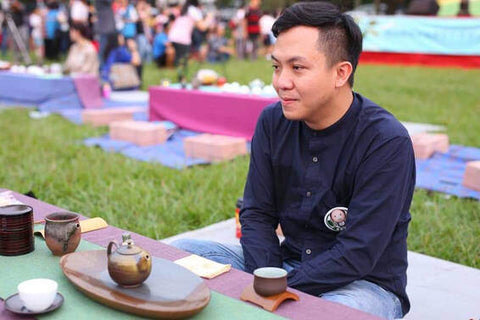DaYuLing 100K Tea Garden

(Originally published October 20, 2019)
The fragrant rolled oolong from DaYuLing is prized for being the highest elevation tea produced in Taiwan. Unfortunately for DaYuLing oolong drinkers, the Taiwanese government has been reclaiming this area over the last few years. Some of these farms were said to be in violation of land use regulations, and in some cases, land leases had expired. Mountain erosion and pollution being concerns, the reclaimed farmland has had its tea trees removed and is being replanted with local vegetation.
The DaYuLing Tea Gardens are named after their location in kilometers along Highway 8. Several of these gardens, such as 104K and 103K, have already had their gardens reclaimed. We were very happy to be able to source DaYuLing oolong grown from the 100K tea garden and processed by our tea partner in Taiwan, Hsieh Jiang Lin. Only a few of these gardens have avoided reclamation, and some may yet be reclaimed. The 100K Tea Garden is one of them.

Hsieh Peilun of Hsieh Jiang Lin Tea Company.
Hsieh Peilun, the son of the current tea master of the family business, Hsieh Jiang Lin Tea Company, was kind enough to answer some of the questions we had about the family business, and their harvests from the 100K Garden in DaYuLing.
Mud&Leaves: Does Hsieh Jiang Lin Tea Company own and operate all of the tea gardens that grow their tea?
Hsieh Peilun: We are recognized by the Taiwanese government’s Agricultural Committee as an outstanding tea company. Not all of our tea is grown in gardens we own, some are from other tea farms. We co-manage with these farmers and oversee the growing of the tea trees and harvesting, and quality control. Most tea gardens in Taiwan are small, and not owned by one large company. We work together as a team to ensure the tea produced is healthy, high quality, and produces the desired mouthfeel.
Mud&Leaves: Could you explain for those not familiar with the area; where in Lishan does DaYuLing begin?
Hsieh Peilun: A lot of people are confused when they hear Lishan. Lishan is an area not a mountain. DaYuLing can be found within the geographic area designated as Lishan. It’s not incorrect to say that DaYuLing is part of the geographic area known as Lishan. However, because DaYuLing is so outstanding, the DaYuLing tea growing area is now seen as a distinct area aside from the Lishan tea growing area. Both are found within the larger Lishan Geographical Area. A lot of Hehuanshan tea is also described as a kind of Lishan tea because it is also found within the same geographical area.
The DaYuLing Tea Area is 10km away from the Lishan tea growing area. It belongs to Ren'ai Township, Nantou County 南投县仁爱乡。

100K marker on Highway 8 in DaYuLing.
Mud&Leaves: Who owns 100k garden? Will this garden be taken back by the government?
Hsieh Peilun: The land is owned by the government. It has been leased to Brother Jie [Chen Junjie 陈俊界, he is known as "Brother Jie" 界哥]。The government has stated it will reclaim the land from Brother Jie in 3 years.
Mud&Leaves: Is the spring or winter harvest preferred? What is the difference between the spring and winter harvests?
Hsieh Peilun: In DaYuLing there are Spring and Winter harvests. Both provide excellent tea. The differences depend on a specific year’s weather. People say, 春水秋香 “Spring smooth, fall fragrant.” Fall in this case means winter. Spring tea is smoother, and winter tea is more fragrant.
Mud&Leaves: How much tea do you harvest from the 100K Garden each season?
Hsieh Peilun: The whole garden produces 100-150kg in the spring. Winter harvest is half the size of the Spring harvest.
Mud&Leaves: Are you the only company harvesting from 100K?
Hsieh Peilun: No, it doesn’t work that way. There are a few companies besides us that take part of the harvest. Divided between us, no company is able to process that much from the 100K garden.

